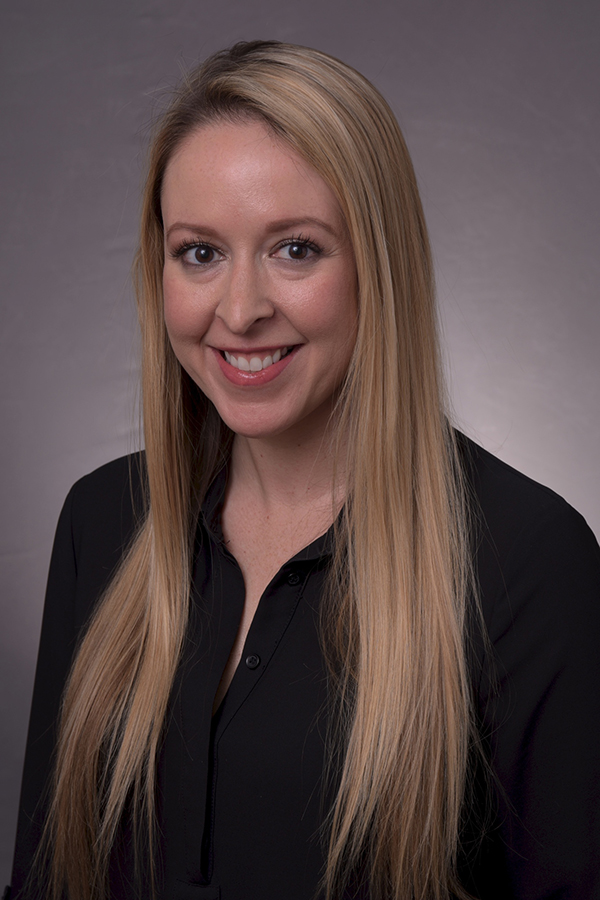The Role of Dental Anesthesiology
Q & A with Dr. Raquel Rozdolski

The very presence of Raquel Rozdolski, D.M.D., a dentist anesthesiologist, on the faculty of TCDM is a sign that the newest dental school in the country is doing things a bit differently. Traditionally, anesthesia for dental patients may only be seen in the oral surgery and periodontal clinics in dental schools. Few schools have a dedicated dentist anesthesiologist to provide the anesthesia across all clinics. But dentist anesthesiologists like Dr. Rozdolski, whose post-dental school training includes a three-year dental anesthesia residency in general anesthesiology, represent a new standard of safety and commitment to excellence, par for the course for the dental education of the future.
March 2019 was a historic moment for Dr. Rozdolski and dentist anesthesiologists across the country, when dental anesthesiology became the 10th dental specialty recognized by the National Commission on Recognition of Dental Specialties and Certifying Boards. Here, Dr. Rozdolski shares her perspective on her role and this exciting milestone for the field.
WHAT DO YOU TEACH?
In the classroom, I direct the Pain and Anxiety Course for second year dental students. My focus in the course is on modalities of anesthesia, anxiety control as well as emergencies in the dental office. Clinically, I’ll provide the anesthesia primarily for oral surgery cases, which is unique, as oral surgeons can and are trained to provide their own sedation. However, Touro recognizes the importance of a dedicated anesthesiologist for surgical cases where sedation is required, which is truly the direction the dental field needs to be aiming for. This model significantly benefits the students who will shadow me during sedation cases. They will learn how to keep a time-based record of anesthesia, learn about the drugs I administer and clinically see the effects those medications have on the patient. The fact that our students are going to be exposed to anesthesiology in the dental setting before advancing onto residency or private practice is very progressive.
WHY DID YOU COME TO TCDM?
My passion is educating students, upcoming practitioners of dentistry and future colleagues to understand the importance of having an anesthesiologist in the room if a patient requires sedation. When dentists are working in the mouth, they’re working in the airway. The safest way to sedate that patient is with a dedicated anesthesiologist, and Touro recognizes and respects that. Of course I also hope to motivate our students to become as interested in the field of anesthesiology as I was when I was a dental student at Tufts.
WHAT DOES IT MEAN THAT TCDM HAS AN ANESTHESIOLOGIST ON FACULTY?
It shows that Touro is really on point with the times in recognizing the importance of having a separate anesthesiologist in surgical rooms. This is a growing trend in dentistry, and Touro is at the forefront of respecting the field of anesthesiology in the dental setting. Dental health is integral to overall health. It’s not just a tooth that dentists are working on, not just a mouth—it’s an entire system.
WHAT’S MOST EXCITING ABOUT WORKING IN A NEW DENTAL SCHOOL, AND WHAT IS MOST CHALLENGING?
At older institutions, the explanation of why they may do things a certain way is, “We’ve always done it this way and it works.” But here, we are creating something from the ground up. We can try new things, see how they work, and from there determine what the best model is for the institution. That’s the challenge, too: We’re doing things that have never been done here before, so we have to be willing to continually adapt our model to what works best in this setting.
WAS TCDM’S COMMUNITY MISSION PART OF THE DRAW FOR YOU?
The whole reason I went into anesthesiology as a specialty was because I had such strong motivation to help my community and provide access to care to a population that generally avoids dental treatment. Touro’s mission goes hand in hand with my passion for this field, and I’m grateful to be a part of this community–driven team.
WHAT DOES IT MEAN FOR DENTAL ANESTHESIOLOGY TO BE A RECOGNIZED SPECIALTY?
Along with my colleagues across the country, we are thrilled to finally be acknowledged for our rigorous training and skills, and our diligence toward the pursuit of higher standards for patient safety. However, for me, this title comes secondary to the importance of awareness this will bring to patients regarding their safety and to dentists who have been left in the dark regarding the extensive training we pursue to provide safe anesthesia care.
This recognition by the ADA will also bring awareness to our field for dental students who are interested in medicine, pharmacology and anesthesiology early on in their education. Because we were not a recognized specialty, most dental students at the majority of dental schools are unaware this is even a pathway they can pursue. I hope this will bring more dentist anesthesiologists into the front lines of dental school education to begin opening student’s eyes to the specialty from the beginning.

